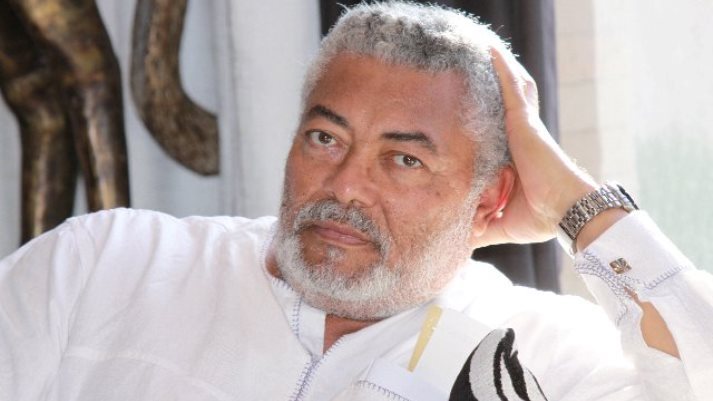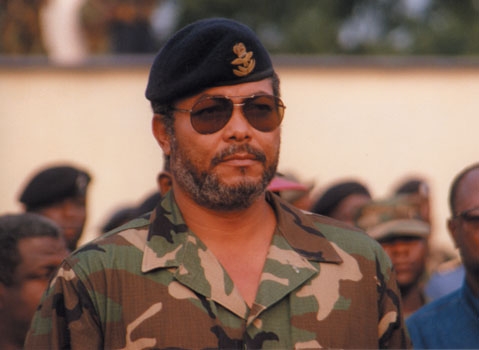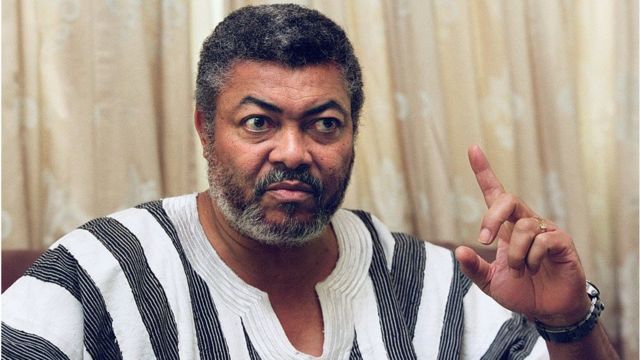|
Getting your Trinity Audio player ready...
|
“The evil that men do lives after them; the good is oft interred with their bones.”
It’s a quote attributed to Mark Antony, lamenting the demise of his friend, Roman general Julius Caesar, as penned by British playwright William Shakespeare. Following the recent, untimely death of Jerry John Rawlings, the former Ghanaian president, my ponderings have found a converging point with those famous words.
There has been an outpouring of praise for the man, and of love and support for his family; to the latter, I would like to add my own deepest condolences. As we reflect on Rawlings’ legacy, however, it is important that we maintain a balanced view of his life and works.
Even the most noble men aren’t without their faults — deeds that, in hindsight, ought to have been done a little differently, or not done at all — and, in order for society to evolve, it is just as important to acknowledge and assess errors as it is to hail and highlight successes. Speaking ill of the dead, particularly in our part of the world, isn’t exactly encouraged — I know — but speaking the truth, even if it hurts, surely isn’t prohibited.

Rawlings, like the rest of us, wasn’t perfect — far from it, in fact — but, reading and hearing all that has been said about him since his passing, you wouldn’t know it. People seem to have forgotten/overlooked the negative and, at times, painful aspects of Rawlings’ rise to power and his governance. My Facebook feed — and, indeed, the wider world — has been filled with very heartfelt and warm memories that many retain of this widely admired, larger-than-life figure.
To these, I nod respectfully.
There are, on the other hand, families and individuals who suffered in some way — displaced, maimed, traumatized, or even bereaved — at the hands of Rawlings and his henchmen, and it is for these I write. With all the adulation being heaped on Rawlings post-mortem, there appears little room, if any, to accommodate talk about the excesses of Rawlings’ rule. Yet, these stories are significant, too, and should be given voice or — at the very least — not omitted from the narrative.
Two decades after Rawlings vacated Ghana’s highest office, many still bear scars from the period in the nation’s history that he oversaw. While my own parents say they never feared for their lives during this time, the situation was bad enough for them to deem it necessary to move their family to the other side of the globe, far away from all they knew and held dear.

And we were not alone – there were, in fact, many whose circumstances were undeniably graver than ours. Rawlings may have done a great deal for Ghana’s development and maturity as a democracy — I’ll leave that for the historians and posterity to dissect — but he certainly wasn’t everyone’s hero.
If what we see in American politics today has taught us anything, it is that democracy is fragile and requires constant vigilance to stay in shape. Erasing the missteps of our leaders denies future generations the opportunity to learn from the former’s failures. A measured view and full account of Rawlings’ accomplishments would prevent this, while providing an outlet for victims of his regimes to express any pained, pent-up emotions in their hearts.
Rawlings had a huge impact on many lives, but that is as factual as the knowledge that not all of that impact is/was positive. May none of that — the good or the evil Antony/Shakespeare spoke of — be interred with his bones.
By: Melissa Klufio Peeler | Daily Mail GH
*The views of the author expressed in this article do not reflect those of this website.





